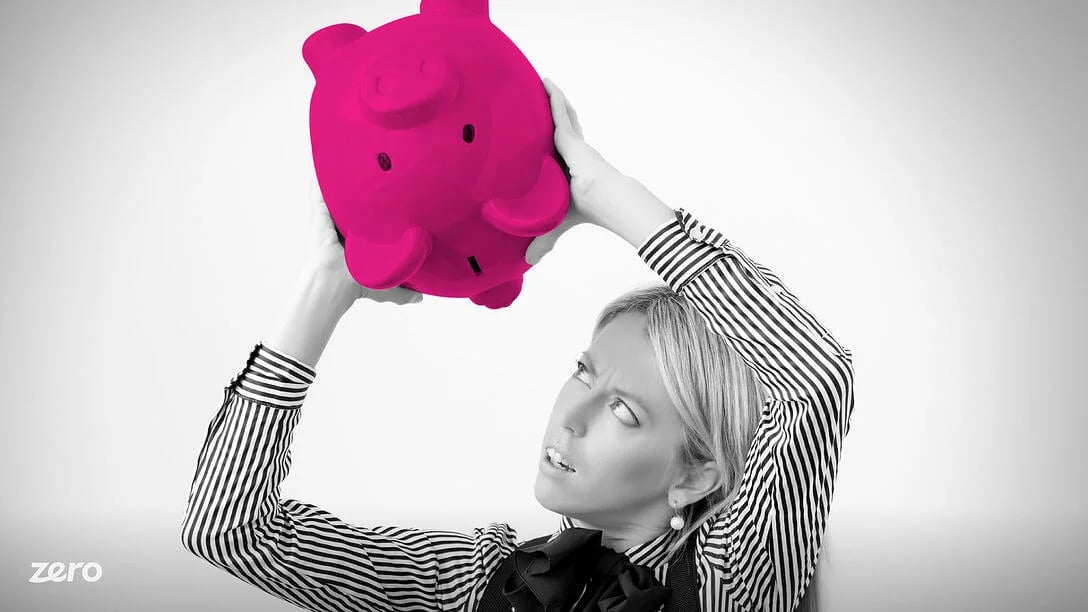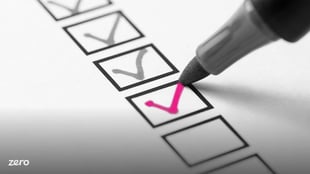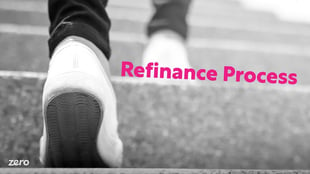What Is a Cash-Out Refinance?

A cash-out refinance is the process of taking the equity you have built in your home in the form of a cash deposit into a designated account or physical check. Many people choose this type of refinance to remodel their home or pay down debts, but the funds can be used however the homeowner chooses
Begin the refinance process today right here.
An example of a cash-out refinance:
- Mortgage balance: $100,000
- Home Value: $300,000
- Equity: $200,000
The homeowner in this example would be able to refinance the $100,000 balance for up to 80% more in value. In this case, the homeowner could refinance their mortgage balance and receive the additional funds of $140,000 in cash at the refinance closing.
This article will outline when and how to navigate a cash-out refinance.
When Should You Do a Cash-Out Refinance?
A cash-out refinance can be used in many different situations when you need to pull equity out of your home. It’s best to contact your lender to advise you if and when you are able to do a cash-out refinance. There might be waiting periods or other stipulations in order to qualify for a refinance.
Lenders usually recommend cash-out refinances to homeowners that have a substantial amount of equity in their homes. Most lenders will advise you to leave 20% of your home’s equity within the home during a refinance to avoid high interest rates as well as PMI (private mortgage insurance). Ideally, the homeowner seeking a cash-out refinance should have over 40% equity built in their home and should have a solid plan for what they intend to do with the cash in hand.
What Can You Use a Cash-Out Refinance For?
The purpose of refinancing is to get better terms on your loan payment, but with a cash-out refinance you may have the potential to receive better terms as well as gain cash in hand. When completing a cash-out refinance you are able to use the funds however you choose, below are a few common options that could help your financial situation.
Home Renovations
A common reason homeowners choose to do a cash-out refinance is to remodel their existing home. Depending on the market, you could receive a lower interest rate compared to a credit card or personal loan on a cash-out refinance, plus the remodel can increase your home’s value.
Before you refinance, have a solid plan for your remodel. Meet with several contractors to get quotes and always factor in contingencies (things that could go wrong or end up being more expensive than anticipated!). Be sure to take in account the timeline for the project to be completed and when payments are due at different stages of the remodel. Once you have a plan, apply for an amount that makes sense with your renovation budget.
Paying Down Credit Card Debt
Refinance rates are very competitive compared to high interest credit card APRs. If you are able to make your credit card payments but are stuck paying high interest each month a cash-out refinance might be a good option.
The first step in considering this option is to gather all of your credit card debt information and carefully calculate the cost of paying them off at your current interest rates. Once you have the total, compare the cost to paying them off in a lump sum plus fees and interest incurred on your cash-out refinance. Using this information you will be able to determine the total savings on each option and you can then make an informed decision.
Debt Consolidation
You may have debt from sources other than just credit cards. If you are looking to roll all of your debts into a single payment with more favorable terms, you could consider a cash-out refinance. Because this refinancing option allows you to use the funds for anything you wish, you can pay off student loans, credit card debt, or even an auto loan.
Be sure to weigh the total debt being paid individually vs rolling all of your payments into one refinance loan. Your refinance is directly tied to your home so only use this option if you are absolutely sure it makes financial sense.
How Much Does a Cash-Out Refinance Cost?
Just like your first mortgage loan, a cash-out refinance has application fees, closing costs, interest rates, credit report fees, and will require an appraisal of your home. According to Freddie Mac, the national average closing costs on a refinance is around $5,000 or between 2-5% of your total refinance amount.
To get the best interest rates and save over the lifetime of your refinance, we recommend having a credit score in the “good” or higher range (670+ credit score). You can, however, still apply and qualify for a cash-out refinance with a sub-par score, but be prepared to pay a higher interest rate and qualify for less cash in hand.
Below are some hard costs associated with a cash-out refinance. Depending on your lender you may have more or less fees and the possibility of rolling your closing costs into your cash-out refinance loan
|
Item |
Average Cost |
|
Application Fee - This is the cost for someone to review your W2’s, bank statements, tax returns, and application. |
$0 - $500 |
|
Credit Report - The lender will hard pull your to show you have excellent payment history and do not have too much debt. |
The lender may or may not charge you for your credit report, this charge can be anywhere from free to up to $100. |
|
Home Appraisal - Is required to inspect the condition and value of the home should you default on the loan. |
$300 - $1000 Your appraisal rate is dependent on your home's location and the size of your home. Be sure to compare rates with local companies. |
|
Title Search - Shows the lender that there are no outstanding liens, paperwork errors and more on your property. |
$0- $200 |
|
Mortgage Points - This helps bring your interest rate down. |
0-1% of loan per point |
|
Underwriting Fee - Depending on your lender you may have to pay for someone to verify that you qualify for the loan. This is known as underwriting. |
$0 - $900 |
The Cash-Out Refinance Process
If a cash-out refinance seems like a good way to restructure your loan and to gain access to the equity in your home, here’s how to get started
We also wrote an entire blog just about the refinance process, read it here.
Step 1: Application
Your refinance application will be similar to your previous mortgage application. Your lender will need to verify your identity, check your credit report, tax returns, W2’s or self employed income statement, bank statements, list of all assets, liabilities, investments, your current home insurance policy and verify any additional properties in your name.
Your lender will likely provide you with a checklist or form with all of the items needed and will contact you for any additional information and explanations
We put together a list of the documents you'll likely need to gather to refinance, read it now!
Step 2: The Appraisal & Title Search
Your lender will ask you to schedule an appointment with a home appraiser to verify the value and condition of your home. This gives the lender insight on the current market value of the home and will have some weight in determining your cash-out value. In this same step your lender will submit the documentation for a title search on your home. This lets your lender know that you do not have any outstanding liens, unpaid property taxes, will discrepancies, and any other restrictions on your home.
If you qualify for a Property Inspection Waiver (PIW) you will be able to skip the appraisal portion of this step.
Step 3: Closing Your Loan
If the title and appraisal come back favorably, your lender will start the process of closing your cash-out refinance. A cash-out refinance can take a few weeks to finalize this process. During loan closing you will need to pay closing costs and possibly have the opportunity to buy mortgage points. On average a cash-out refinance will take between 30 and 45 days from application to closing.
Our Mortgage Learning Center features blogs on a wide range of mortgage and refinancing topics.
Cashing Out On Your Home Equity
A cash-out refinance can be a great tool when used properly. This type of refinance is most commonly used for home repairs and upgrades but the homeowner is allowed to use the funds however they would like. Some tips when applying for a cash-out refinance are to make sure you have a good credit score, have a large amount of equity in your home, and you have a solid plan of what you want to do with your cash-out funds.
Begin Your Refinancing Today!
This page last updated: November 2, 2022
Read more on this topic below.

A mortgage is often the largest monthly expense homeowners pay. The thought of reducing the amount...

It’s likely that your mortgage loan will be the largest loan you have during your lifetime. Mortgages are not a one size...

Refinancing your home can save you thousands of dollars per year! When you extrapolate that savings over...

A loan estimate is crucial to obtain when looking for a loan. This estimate not only gives you the details of a mortgage but also compares offers...

If you’re looking to buy a house, and do not have a mountain of cash saved up, you’ll need to consider getting a mortgage to help you finance this...

Whenever you are borrowing money, whether it’s for a new mortgage, a refinance, credit card, or car loan, you’ll hear...

Refinancing can open up opportunities for homeowners to cash out on equity, reduce monthly mortgage payments, or renegotiate the interest...

The interest rate on a mortgage is simply the fee a lender charges the borrower for borrowing their money. Over the...

Consider this scenario. You bought a house several years ago, and at the time, you thought you got a pretty great...
